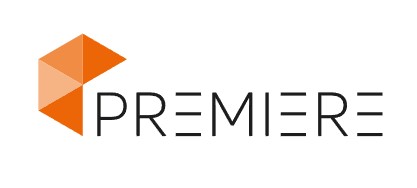Europe Horizon project “PREMIERE – preparing multi-actor projects in a co-creative way”

Do you have a challenge? Horizon Europe funding can help!
If you’re facing a challenge in agriculture, food production, bioeconomy, or natural resource management, Horizon Europe can help. It provides funding to solve real-life problems and make a positive impact on the environment and society. Cluster 6[1] of Horizon Europe focuses specifically on food, bioeconomy, natural resources, agriculture, and the environment.
[1] Horizon Europe Work Programme 2023-2025. 9. Food, Bioeconomy, Natural Resources, Agriculture and Environment
Horizon Europe requires the Multi-Actor Approach (MAA)?
To ensure that the solutions are practical, relevant, and effective, Horizon Europe requires the Multi-Actor Approach (MAA)[1]. The goal of the MAA in Horizon projects is to bring together people from science, practice, or anyone who can contribute to tackling a real-life problem by collaborating from the very start. The goal is to create solutions that are co-developed and co-owned by those who will ultimately benefit from them—end-users who are to use the solutions in their everyday work to overcome challenges and problems—ensuring they meet real needs and can be easily implemented.
In MAA projects the planning and preparation phase are crucial to ensure a cooperative and deliverable consortium.
MAA requires:
- Clear objectives, relevance to users’ needs and shared understanding
Proposals must demonstrate how the project’s objectives and planned activities address the concrete needs, problems, or opportunities of (end-)users of the results. A common understanding of the purpose and value of the cooperation must be established, ensuring clarity on what is to be achieved and how all partners benefit. - Trust, equity, and balanced expectations:
Projects must foster trust among partners, ensuring all are capable of delivering, taking responsibility, and cooperating effectively. Equity in contributions is crucial, recognizing each partner’s unique circumstances and allocating resources and opportunities fairly. There must also be a clear agreement on balancing expectations, such as for example, fast, practical results versus longer-term scientific research. - Balanced and complementary consortium:
The project consortium must include a balanced mix of relevant actors, combining scientific expertise, practical experience, and other necessary knowledge. This ensures the inclusion of complementary skills and expertise to deliver results that are broadly applicable and address real-world needs. - Active and inclusive participation from start to finish:
All participants must be actively involved from the beginning and throughout all stages of the project. Proposals must define the roles and responsibilities of all actors, ensuring their contributions are meaningful. Real involvement ensures collaboration and strengthens the co-ownership of results. - Effective communication and supportive collaboration environment:
Proposals must employ flexible, suitable, and participatory methods or tools to support collaboration among partners. A safe and encouraging environment should be fostered, enabling all participants to share ideas, voice opinions, and ask questions without fear of judgment. - Practical outputs and dissemination:
The project must deliver concrete outputs, such as tools, approaches, or solutions, which are easy to understand, ready to use, and freely accessible. Outputs must be disseminated using channels most relevant to (end-)users. - Building on existing knowledge with EU-wide impact:
Proposals must outline how the project will build on existing knowledge, including tacit knowledge and best practices, to create innovative solutions. Projects should involve high-quality knowledge exchange activities and interactive innovation groups, such as EIP-AGRI Operational Groups, where applicable. The results must complement existing research and practices, demonstrating clear added value with a broad European impact.
[1] MAA is applied to Horizon Europe’s global challenges in food, natural resources and environment, and it has parallelisms to similar concepts as open science, responsible research and innovation or transdisciplinary.
Download the MAA one-pager HERE.
How the PREMIERE project can help?
PREMIERE aims to strengthen the MAA by supporting the development of more relevant, coherent, and well-prepared project proposals. This includes all aspects of improving the search for suitable partners, building the project partnership, co-designing the work plan, and negotiating an appropriate budget.
More specifically, PREMIERE provides tools to help you:

Who are in the PREMIERE consortium?
- PREMIERE is coordinated by the German University of Applied Sciences Hochschule für Nachhaltige Entwicklung Eberswalde, Germany
- Centre of Estonian Rural Research and Knowledge (METK), Estonia
- NGO Kodukant Läänemaa (KKLM), Estonia
- Het Eigen Vermogen van het Instituut voor Landbouw- en Visserijonderzoek (EV-ILVO), Belgium
- ARVALIS – Institut du végétal (ARVALIS), France
- Cologne Game Lab, Technische Hochschule Köln (CGL-THK), Germany
- National University of Ireland, Galway (NUIG), Ireland
- Consiglio per la ricerca in agricoltura e l’analisi dell’economia agraria (CREA), Italy
- Nodibinajums Baltic Studies Centre (BSC), Latvia
- Open Universiteit Nederland (OUNL), Netherlands
- Highclere Consulting SRL (HCC), Romania
- Departament d’Acció Climàtica, Alimentació i Agenda Rural. Generalitat de Catalunya (DACC), Spain
- International Centre for Advanced Mediterranean Agronomic Studies – Mediterranean Agronomic Institute of Zaragoza (CIHEAM-IAMZ), Spain
- Instytut Podstawowych Problemów Techniki Polskiej Akademii Nauk (IPPT-PAN), Poland
- Chamber of Commerce and Industry of Slovenia – Chamber of Agricultural and Food Enterprises (CCIS-CAFE), Slovenia
FIND OUT MORE: https://premiere-multiactor.eu/
